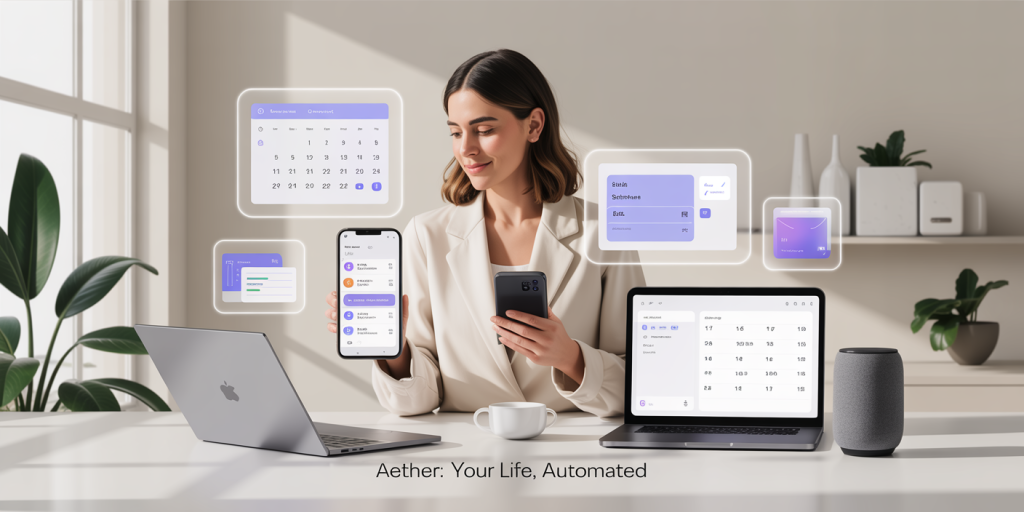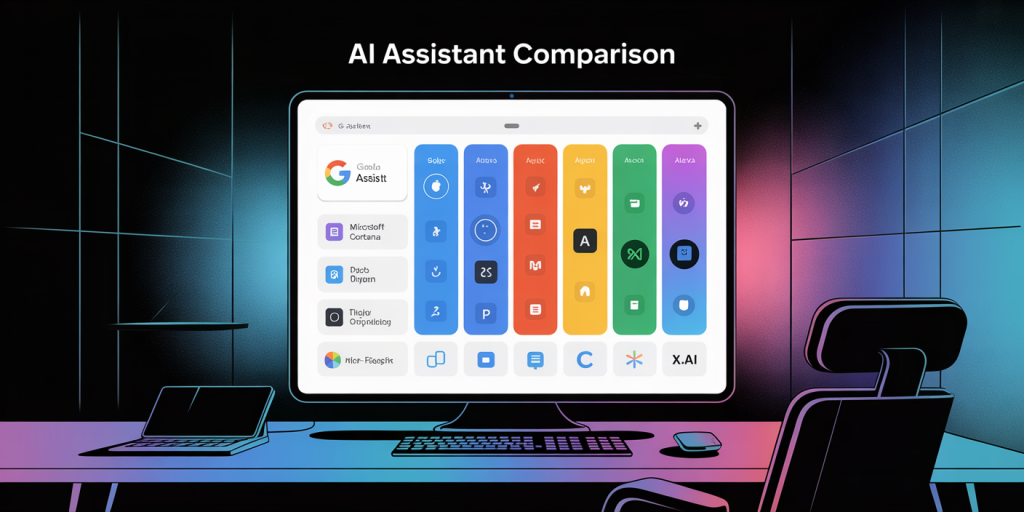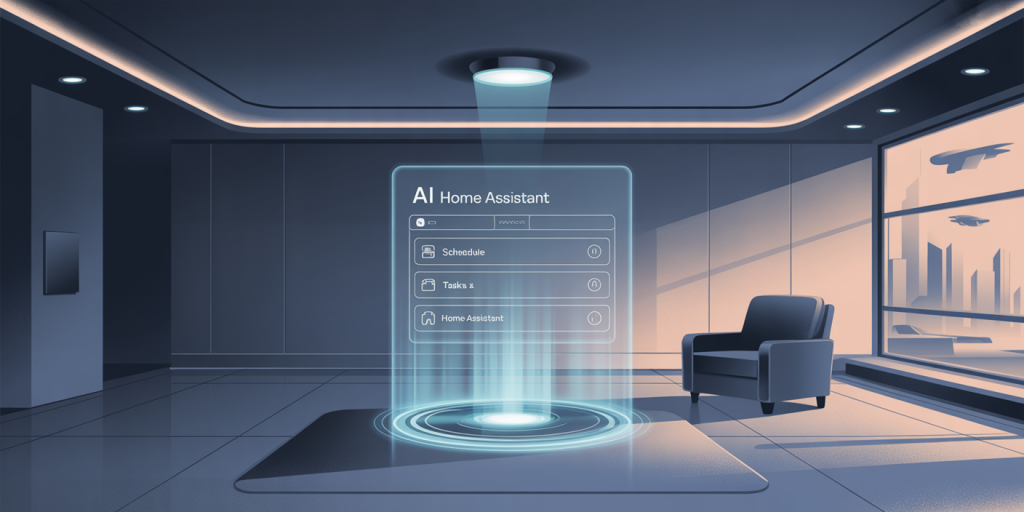How to Automate Life Admin Tasks with AI Assistants
Managing everyday administrative tasks—often referred to as “life admin”—is a burden many adults face. From scheduling appointments and managing bills to responding to emails and organizing documents, life admin tasks consume hours each week. According to a study by the U.S. Bureau of Labor Statistics, adults spend an average of 6 hours weekly on routine personal administration, which detracts from more meaningful or productive activities. Fortunately, advancements in artificial intelligence have introduced powerful AI assistants capable of transforming these tedious chores into streamlined, automated processes.
This article explores how AI assistants can automate various life admin responsibilities efficiently. You will discover practical examples, comparative insights on popular AI tools, and actionable steps to optimize your personal management using AI. Ultimately, the goal is to save time, reduce cognitive load, and improve overall productivity.
—
Understanding Life Admin Tasks and Their Challenges
Life admin covers an array of essential but often mundane tasks: paying bills, booking appointments, managing calendars, responding to routine emails, handling subscriptions, and tracking expenses. While individually minor, these tasks accumulate to create a significant cognitive load. Psychologists have identified this burden as a contributor to “decision fatigue,” reducing mental energy expenditure for more important activities.

Time tracking research highlights that about 28% of adults allocate more than 5 hours weekly to managing such duties. Furthermore, incomplete life admin can lead to missed payments, loss of important deadlines, or reduced financial oversight—all of which trigger stress. This is where AI assistants come into play as game-changers. These digital helpers can handle repetitive tasks, send reminders proactively, and even suggest ways to optimize life scheduling.
For example, rather than manually checking due dates for credit card bills, an AI assistant like Google Assistant or Apple’s Siri can monitor accounts and alert users before deadlines. This convenience enables users to focus on creative or strategic pursuits while minimizing errors and delays in management.
—
Popular AI Assistants for Automating Daily Admin Tasks
Multiple AI assistants support life admin automation, differing in functionality, platform compatibility, and integration levels. Here’s a comparative look at widely used AI assistants tailored for life admin:
| AI Assistant | Key Features | Platform Compatibility | Integration with Apps | Pricing Model |
|---|---|---|---|---|
| Google Assistant | Voice commands, event scheduling, reminders, email filtering | Android, iOS, Web | Google Calendar, Gmail, Google Keep | Free |
| Apple Siri | Voice-activated reminders, calendar management, email dictation | iOS, macOS | Apple Mail, Calendar, Reminders | Free |
| Microsoft Cortana | Email sorting, calendar integration, task reminders | Windows, iOS, Android | Outlook, Teams | Free with Microsoft 365 |
| Amazon Alexa | Smart home integration, calendar management, shopping lists | Alexa-compatible devices | Third-party apps via Skills | Free, with premium services |
| x.ai (Scheduling AI) | Automated meeting scheduling, calendar syncing | Web, iOS, Android | Google Calendar, Outlook | Paid plans available |
Each assistant boasts unique strengths. Google Assistant excels in integrating Gmail and calendar events, perfect for handling emails and appointments concurrently. Apple Siri brings tight integration within the Apple ecosystem, beneficial for users deeply embedded in these environments. Microsoft Cortana combines life admin with Microsoft 365’s productivity suite, ideal for those working primarily on Windows and Office tools. Amazon Alexa’s voice control and shopping list capabilities offer the advantage of managing both digital and physical life admin aspects.

Real-world use cases validate these AI assistants’ advantages. For instance, a 2023 survey by Zapier revealed that 71% of people who use AI assistants for email and scheduling reported a 30% decrease in time spent on communications.
—
Automating Email and Communication Management
One of the most time-consuming life admin tasks is dealing with email overload. AI assistants can triage your inbox, prioritize messages, and even draft replies. Tools integrated with AI provide smart filters that categorize mails into folders such as “Important,” “Social,” and “Promotions,” reducing the need for manual sorting.
For example, Google’s Gmail leverages AI to highlight important emails and suggest instant responses, saving users minutes per message. Microsoft Outlook’s AI capabilities include focusing the inbox on relevant emails and deferring less critical ones, helpful in minimizing distractions.
Beyond sorting, AI-driven assistants like x.ai can automate scheduling meeting times with contacts without requiring manual back-and-forth emails. This prevents the common scenario of multiple email exchanges to finalize dates and times.
Practical implementation: Consider a busy professional who receives over 100 emails daily. By enabling Google Assistant’s email filtering and Smart Compose features, they can reduce inbox triage time by 40%, while using x.ai to coordinate meetings saves at least an hour per week.
—
Optimizing Calendar and Appointment Scheduling
Managing appointments spans a considerable portion of life admin. Double-bookings or missed appointments stem from manual scheduling errors or oversight. AI assistants offer robust calendar management features—syncing multiple calendars, sending event reminders, and suggesting optimal meeting times based on availability.
AI tools also employ natural language processing (NLP) to set events via voice or text commands. For instance, simply saying, “Schedule a dentist appointment next Friday at 2 PM,” can trigger the AI to create a calendar entry,notify relevant parties, and even look up available slots online if integrated.
Moreover, AI-powered tools can analyze your schedule for patterns to prevent burnout. Microsoft Cortana, for example, can recommend scheduling breaks and balance meeting distribution effectively.
A real-life use case comes from a 2022 study by Adobe, where employees using AI scheduling tools experienced a 23% increase in perceived work-life balance by avoiding overcommitting and ensuring adequate downtime.
—
Managing Finances and Bill Payments Automatically
Managing bills and financial admin consumes mental energy and time. AI assistants can automate bill tracking, alert users of due dates, and even initiate payments through secure connections. According to a 2023 report from McKinsey, automated bill payments reduce late fees by 35% among users.
Platforms like Truebill (now Rocket Money) integrate AI assistants to monitor subscriptions, highlight unused services, and negotiate better deals. When linked with bank accounts, these AI tools provide a dashboard overview of spending patterns and upcoming payments, helping maintain budgetary discipline effortlessly.
For example, a user leveraging AI to manage electric, credit card, and internet bills can automate payments ahead of due dates, avoiding service interruptions and improving credit score reliability through timely payments. Digital wallets such as Apple Pay and Google Pay further streamline this by enabling a single platform for multiple payment types activated by AI reminders.
—
Streamlining Document and Task Management
Life admin often involves maintaining digital and physical documents—receipts, contracts, medical records, and warranties. AI assistants equipped with Optical Character Recognition (OCR) and tagging capabilities can scan, file, and retrieve documents efficiently.
Apps like Evernote and Microsoft OneNote use AI to categorize notes and scanned documents automatically. This removes the need for manual filing systems. Similarly, AI-enabled task managers like Todoist and Any.do analyze task priorities and deadlines, sending timely nudges to ensure commitments are met.
A practical example involves a freelance graphic designer who uses AI document management to track contracts and invoices. The assistant flags overdue invoices and generates reminders, improving cash flow management.
—
Future Perspectives: The Evolution of AI in Life Admin
As AI technology evolves, life admin automation will become increasingly personalized and proactive. Machine learning models will predict administrative needs before users articulate them, advancing from reactive assistants to anticipatory partners.

Natural language understanding improvements will lead to more seamless voice and chat interactions, allowing users to delegate complex multi-step tasks effortlessly. Imagine telling your AI assistant, “Plan my trip next month including booking flights, hotel, and setting work reminders,” and having everything managed autonomously.
Integration with IoT (Internet of Things) devices will further automate physical life admin such as household chores, groceries restocking, and utility management, creating a holistic life management ecosystem.
Furthermore, emerging privacy-preserving AI techniques will balance automation benefits with safeguarding user data, addressing concerns about data security—a critical factor slowing adoption today.
In sum, AI assistants are poised not just to reduce life admin workload, but also increase life quality by freeing cognitive bandwidth and simplifying overall daily management.
—
Automating life admin with AI assistants offers transformative potential. By strategically leveraging suitable AI tools, anyone can regain time usually wasted on mundane tasks and focus on what truly matters. The future holds even greater promise as AI continues to learn, anticipate, and optimize our personal and administrative lives.
